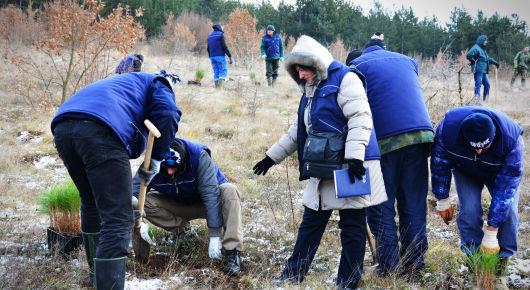FAO calls for recognition of women’s role managing Kosovo’s forests

Managing forests is a complex task, and with forests covering 44 percent of its territory, Kosovo* has a lot to care for. The job is worth doing right, since forests can be a source of fuel, food and income for rural people. Yet, as a new FAO report highlights, not enough attention has been paid to one important group of forest users: women.
Gender, rural livelihoods and forestry’ Assessment of gender issues in Kosovo’s forestry – now available in English, Albanian and Serbian languages – takes stock of Kosovo’s forests and offers ideas and suggestions for the future. By presenting the environmental, economic and social benefits of including rural women in forest management, FAO hopes the publication will prompt improvements.
It builds on FAO-conducted field research designed to better understand the situation, identifying obstacles and opportunities for women in the forestry sector. The main findings clearly refute the widespread notion of forest work is a male domain.
Baseline data now at hand
In general, men predominantly harvest firewood, while women collect non-wood forest products, such as mushrooms, forest fruits, and herbs. Almost half of all female respondents (44 percent) said this helps provide income and food for their families.
Given women’s close involvement with forests, FAO is calling for women’s interests to be considered in the development of national forestry policies and strategies. Their voices could also be stronger at municipal level.
“Affirmative and empowering models should be applied that encourage more women to become actively involved in this sector,” said the FAO national project team leader Naser Krasniqi. “If both women and men’s opinions are consistently heard in the planning and decision-making process, more income-generating opportunities will be created, adding to the development of rural areas in general.”
Gender aspects of forestry emerged strikingly during recent FAO activities in Kosovo, and received support not only from local authorities, but also from the Government of Finland which is funding the project under which the research was carried out.
Looking to the future
The report concluded that government staff working on forestry and forest management should collaborate more closely with gender equality specialists and relevant civil society organizations. This would help reconcile forestry policies and forestry decision-making processes with Kosovo’s regulatory framework endorsing gender equality.
On the other hand, rural communities and even women themselves are often unaware of their own rights, opportunities and possibilities when it comes to forestry. The FAO report shows an immediate need to improve women’s access to information, capacity development and decision-making. From interviews, it became clear that women are eager to learn and improve their skills in collecting, processing and marketing non-wood forest products.
Gender, rural livelihoods and forestry, Assessment of gender issues in Kosovo’s forestry report was produced as part of an ongoing FAO project. Supported by the Government of Finland, it aims to increase the Kosovo forestry sector’s contribution to the national economy through sustainable use of forest resources. This is directly related to Sustainable Development Goal 15, “Life on Land.”
Since the Ministry of Agriculture, Forestry and Rural Development is keen to improve women’s circumstances, shortly after finalizing the report, FAO conducted a training where gender mainstreaming action plans were drafted by representatives of Kosovan municipalities. FAO is currently supporting officials at municipal and national level in the finalization and implementation of these documents.
26 October 2017, Pristina, Kosovo*
*References to Kosovo shall be understood to be in the context of Security Council Resolution 1244 (1999).
